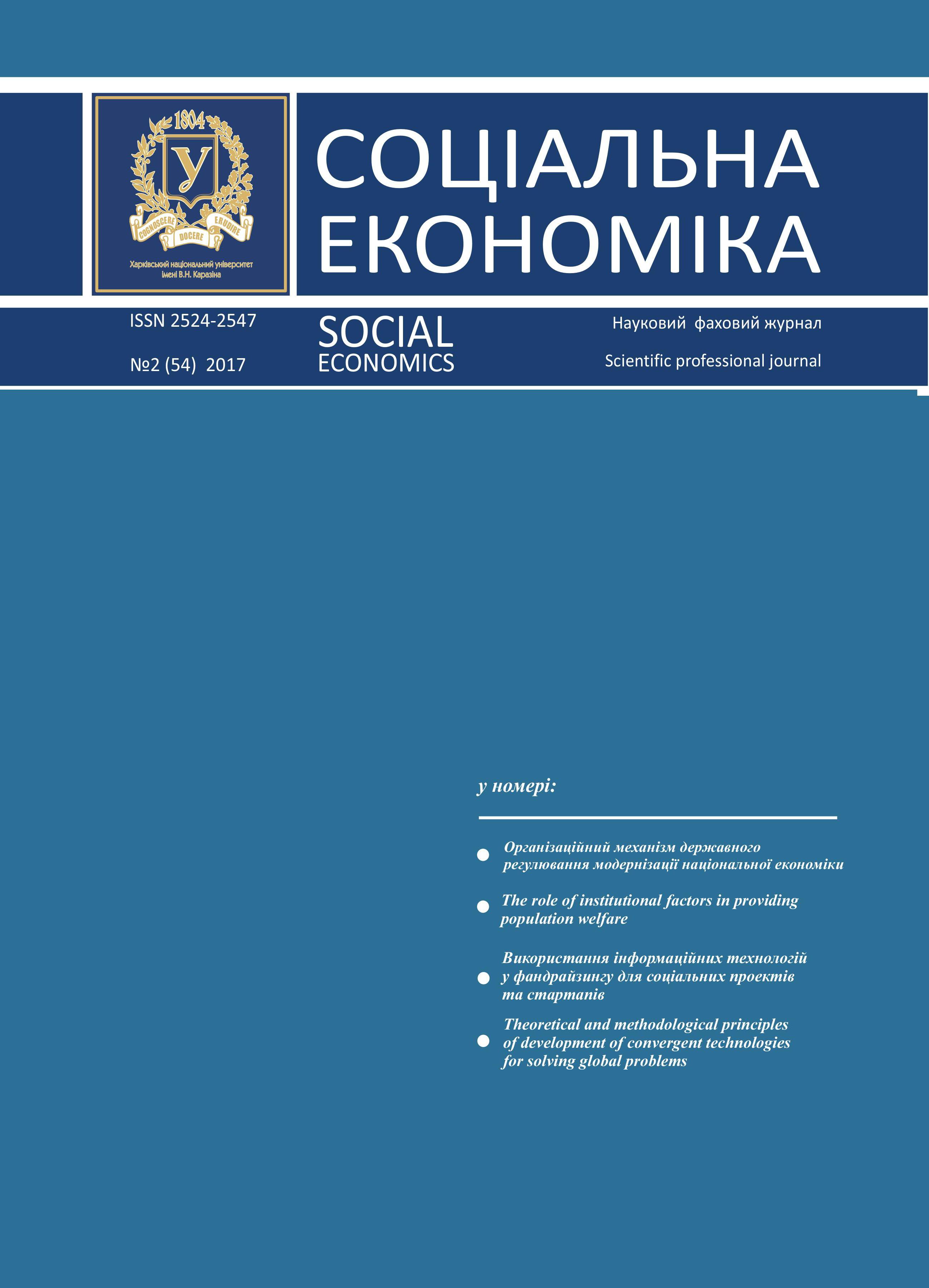STANDARDIZATION AND UNIFICATION OF METADATA TO ENSURE THE DEVELOPMENT OF “SMART” SUSTAINABLE CITIES
Abstract
The article focuses on the study of the essence, the principles of compilation and the scope of international standards ISO (International Organization for Standardization) application, which summarize the best practices in a wide range of areas that contribute to the functioning of the city, community and the achievement of the goals of sustainable development of the Organization of United Nations to overcome poverty, protect the planet and ensure prosperity. The basic principles of ISO functioning are analyzed. According to the results of the research, the essence of the main stages of standards development is defined and outlined. The list of ISO technical committees that promote the development of «smart» cities is given. The main elements of the «smart» city are used to classify the standards. The main functions of the standards of strategic, process and technical levels are considered. In order to further analyze and create the information and analytical base for the study of «smart» sustainable cities development, the metadata for sustainable development of the «smart» city were systematized, the essence of the main international standards of the strategic, process and technical levels was considered. The basic provisions of these standards can be adopted by all relevant stakeholders involved in the planning, development and operation of intellectual community infrastructures, including planners, developers, operators and suppliers.
Also, the international standards that are under development are considered separately. With the help of international standards, individual cities, countries and regions of the world can become «smarter» step by step. National implementation and use of international standards can support and ensure the smooth and integrated development of smart sustainable cities.
Downloads
References
2. International Electrotechnical Commission. www.iec.ch. Retrieved from http://www.iec.ch/.
3. International Organization for Standardization. www.iso.org. Retrieved from https://www.iso.org/home.html
4. International Telecommunication Union. www.itu.int. Retrieved from https://www.itu.int/en/Pages/default.aspx.
5. International Standard IEC 30182. Smart city concept model — Guidance for establishing a model for data interoperability. (1st ed.). (2017). Published in Switzerland.
6. International Standard ISO 37120:2014 Sustainable development of communities – Indicators for city services and quality of life. (1st ed.). (2014). Published in Switzerland.
7. ISO and smart cities. www.iso.org. Retrieved from http://www.iso.org/sites/worldsmartcity/assets/ISO-and-smart-cities.pdf.
8. Report of the Inter-agency and Expert Group on Sustainable Development Goal Indicators. Statistical Commission Forty-eighth session (2017). United Nations. undocs.org. Retrieved from http://undocs.org/en/E/CN.3/2017/2.
9. SDG Indicators. Global Database. The Sustainable Development Goal indicators website. United Nations. unstats.un.org. Retrieved from https://unstats.un.org/sdgs/indicators/database.
10. SDG Indicators. Metadata repository. The Sustainable Development Goal indicators website. United Nations. unstats.un.org. Retrieved from https://unstats.un.org/sdgs/metadata/.
11. The Sustainable Development Goals Report 2017. United Nations. unstats.un.org. Retrieved from https://unstats.un.org/sdgs/files/report/2017/ TheSustainbleDevelopmentGoalsReport2017.pdf.
12. World Standards Cooperation. www.worldstandardscooperation.org. Retrieved from https://www.worldstandardscooperation.org/.




